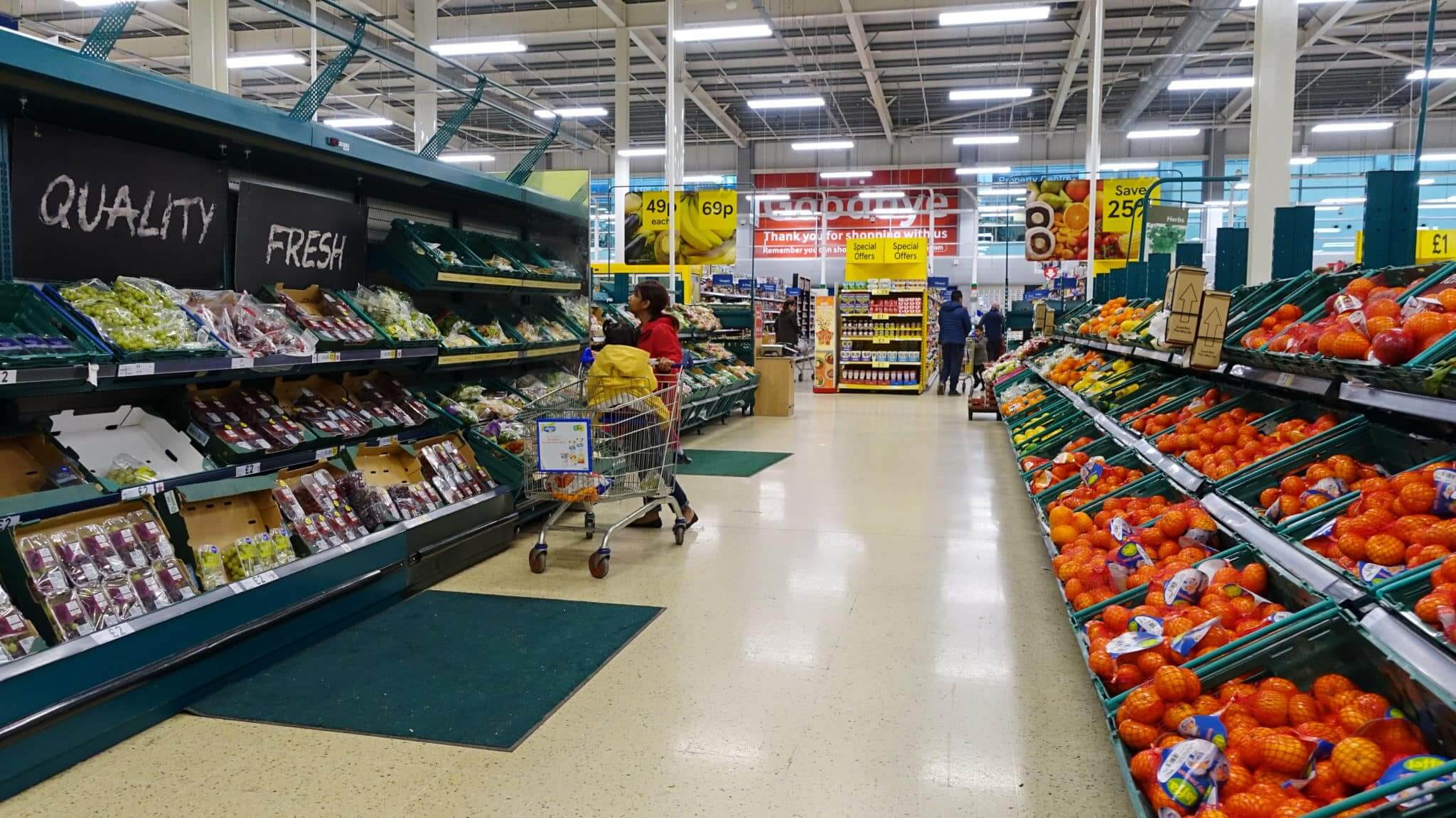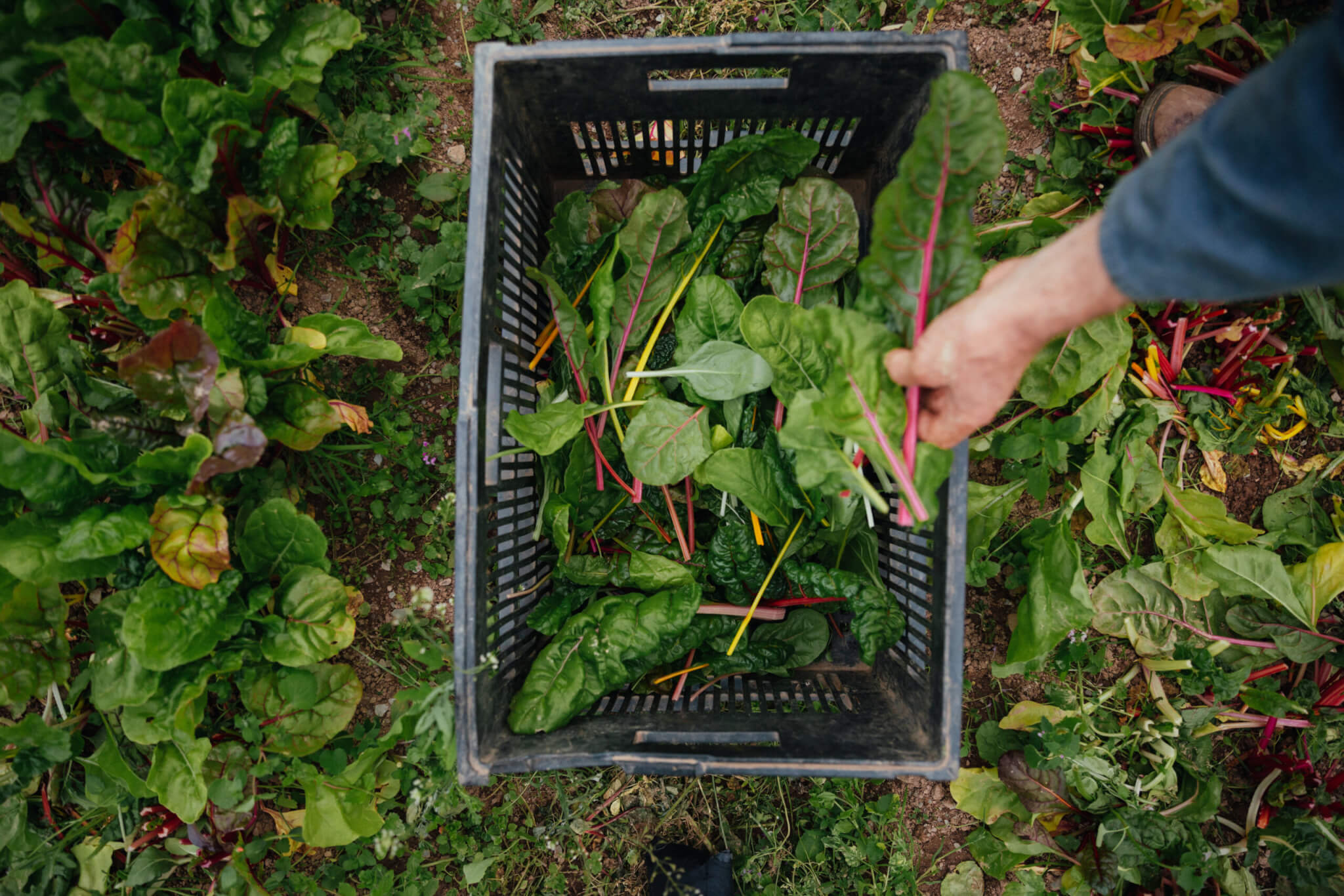Nothing sums up the craziness of our current food and farming system more than recent comments by Tesco chairman John Allan who, with an entirely straight face, seemingly accused food suppliers of profiteering – arguing they are using inflation as an excuse to hike prices. Jaws collectively dropped.
So what’s the reality? Farmers and food suppliers are facing eye-watering increases in energy prices; astonishing increases in fertiliser and animal feed prices; rising wages and drastic post-Brexit shortages of labour; a major drop in the farming subsidies; an unforgivable lack of clarity from a government which has repeatedly delayed announcements on their replacements; and trade deals that have undermined UK prices and standards. And they also face the regular day to day cost-of-living increase that all of us face.
Many – especially the smaller and more ethical farmers and suppliers which are committed to a sustainable future – are on the brink of bankruptcy. Many more are looking to get out.
Unsurprisingly, the president of the National Farmers’ Union accused Allan of living in a parallel universe. And the trade body for food companies pointed out, politely but very firmly, that the boot is on the other foot. Supermarkets have an incredible stranglehold over their suppliers. Unlike in other businesses, food producers don’t just set their prices – they plead for them. Supermarkets regularly refuse to pay an increase to their suppliers without demanding to see private accounts, poring over them line by line, making them justify every penny.
Many, especially smaller and more ethical farmers and suppliers committed to a sustainable future – are on the brink of bankruptcy.
And when we talk about supermarket power, let’s not forget the wider issues – the cancelled contracts at short notice, or refusing produce on spurious quality grounds (‘sorry Madam farmer, your carrots are the wrong shape’). All of this contributes not only to the crisis in farming, but to catastrophic levels of food waste. If food waste were a country, it would be the third highest emitter of greenhouse gases after the US and China.
Just a few short days after Allan’s unfortunate remarks, by a happy chance along came the the long-delayed government announcement on the replacement for EU farm payments – a once in a lifetime opportunity to grasp the scale of the nature emergency, to which farming is the biggest contributor; the climate emergency, with food and farming responsible for a third of greenhouse gases; the explosion in food poverty, the health crisis, and the seismic crisis hitting the very existence of our farmers.
It is important not to look at farming in isolation but as part of a bigger food system.
But what a disappointment. The new nature payments, or ‘ELMs’, turned out to be a series of measures without a vision, like launching a few lifeboats at an oncoming tsunami.
So what should that announcement have been? The Green Party has a joined up vision that looks at the food system as a whole, shifting the billions of pounds we already spend in subsidies to tackle these related crises, ensuring that farmers are valued and supported. Crucially, however, it is important not to look at farming in isolation but as part of a bigger food system. We can’t rebuild farming if we leave the farmers in a headlock. We welcome measures like the restoration of hedgerows – this is vitally important – but it is only a small part of the picture.
We have to also rebuild the local supply chains and local shops, restoring local food security as well as local economies and jobs. And we have to limit the dominance of large supermarkets, level the playing field, and ensure that farmers receive fair prices and fair contracts. We need a bigger vision, which is coherent not piecemeal, and with greater ambition.










Some years ago, a friend of mine delivered twenty tons of prepacked sprouts to the leading supermarket of its day a week before Christmas.
On Christmas Eve, they backed half of them, saying they were not up to standard. When I asked my friend how he felt about it, he shrugged his shoulders and said that behaviour was nothing out of the ordinary. The buyer had simply ordered too much. You just have to put up with it. The sprouts were subsequently unpacked by hand and thrown on the compost heap.
Disgusting but as the poor grower said no surprise. Perhaps the country needs a food arbitration service. If the grower proves their produce WAS OK, the supermarket will not be allowed to ‘back’ it without paying. At the very least it ended up composted, better than landfill…
We had a similar experience Christmas 2021 when our church was given probably half a ton of brussels and parsnips shops could not shift, but it was so late it was impossible to get them out to foodbank clients, plus plastic packaging making them ‘sweat’ meant they were almost past use already. These too ended up on the minister’s compost heap, where they were still a problems as too wet and slushy…
Also we sometimes eat out at carvery pubs. At least you get plenty of veg to your meal. But it makes our hearts ache realising the waste as we watch them tip kilos of veg into black bags at the end of the evening. Pig bins are a distant memory for health risk reasons. And we always ask the carver for the delicious [sorry for any offence] juicy, fatty bits they have already added to the discard pile at the edge of the carving platter. But 99.9% of those end up in the bin too, and any joint less than a certain weight remaining. How on earth can we reduce this waste??? We sit there dreaming of leek and potato soup, pea and ham soup, bubble and squeak, [all needing no new ingredients], cauliflower cheese etc
We haven’t tried it yet but our local one does offer ‘too good to go’ meals at less than half the eat in price. Though once again, plastic packaging…’sigh’
Any ideas anyone?
How true, but it is unlikely to happen unless the majority of people see good food as a priority not as an annoying necessity. Sadly there is a section of society who think it is clever to shovel any old processed sugar, salt and additive-laden rubbish into their mouths and to sneer at people who choose to eat good food. And ‘good’ does hot mean the latest fad or pretentious trendy fusion cuisine, just a simple, largely plant-based (preferably organic) diet. And as others have said, tackling food waste must be a top priority for any government